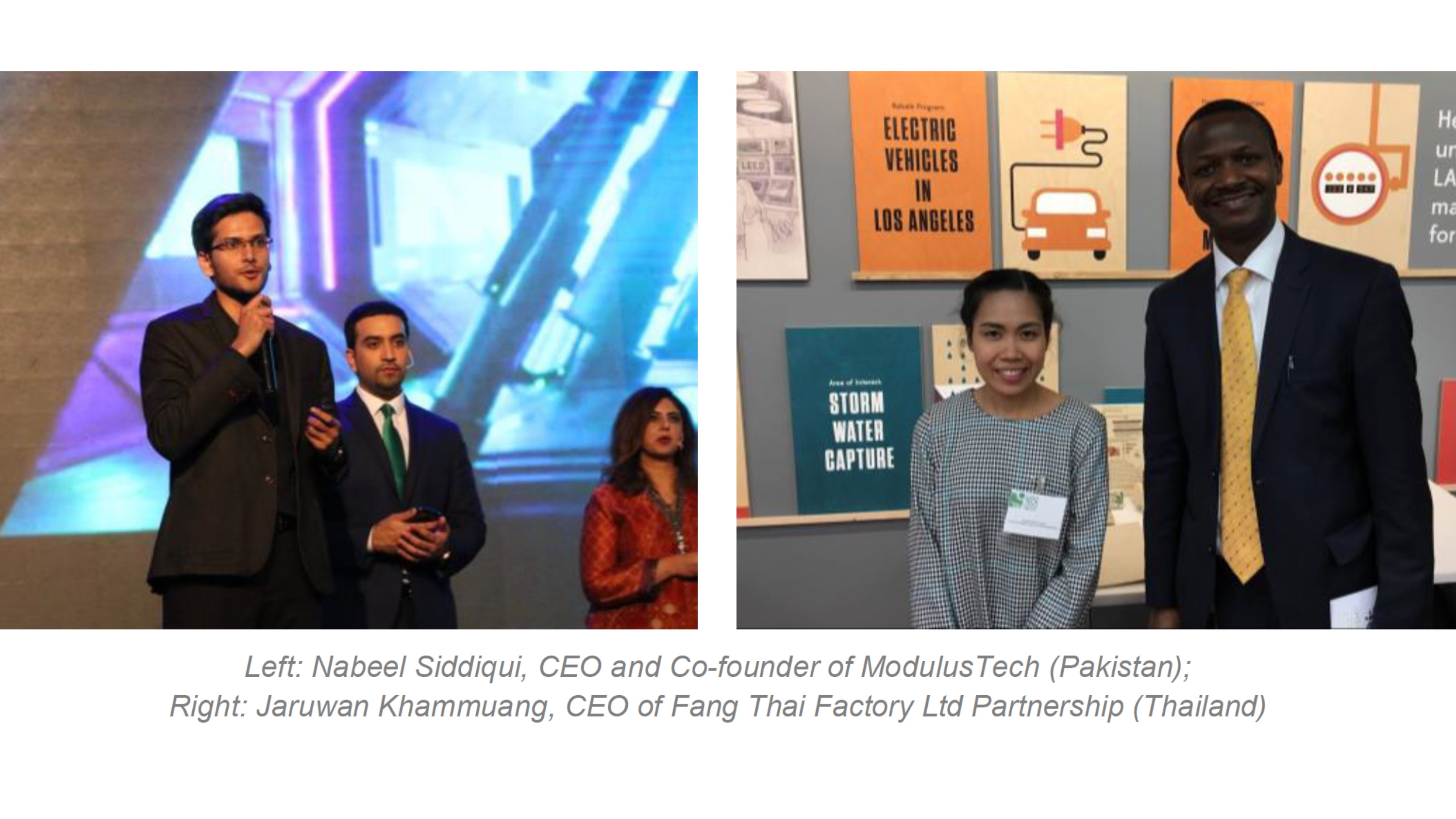

GCIP Relaunch: Empowering Cleantech Innovators for a Greener Future
01 July 2022 Daria Shumilova

By Daria Shumilova
Energy-efficient water heaters, affordable and sustainable housing, rice straw paper or insect-based protein - these examples have one thing in common: these cleantech innovations and the entrepreneurs behind them are part of the Global Cleantech Innovation Programme (GCIP) community, a programme funded by the Global Environment Facility (GEF) and implemented by the United Nations Industrial Development Organization (UNIDO).
“GCIP was one of the best learning experiences I had earlier on as a social entrepreneur”, says Nabeel Siddiqui, CEO of ModulusTech and 2017 GCIP Pakistan national winner. ModulusTech is a cleantech enterprise pioneering affordable net-zero housing by using innovative flat-packed modular design, which allows for minimal transportation and setup times. “The mentorship, support and networking opportunities have been especially helpful and enabled us to maximize our impact in Pakistan”.
For Jaruwan Khammuang, a GCIP Thailand alumna, the programme has opened new partnerships and upscaling perspectives. Her company, Fang Thai, produces paper products from residue rice straw left after rice harvesting, both providing additional income and reducing pollution. “Participation in the GCIP accelerator was a great opportunity for us to network and get to know new people to collaborate with, with whom we then have continued our business”, says Khammuang. “UNIDO encouraged us to scale up for a greater impact in our community and beyond”.

Empowering ideas to make a difference
Entrepreneurs like Khammuang or Siddiqui play a vital role in addressing common drivers of environmental degradation and climate change by developing disruptive innovations. Small and medium-sized enterprises (SMEs) have a great potential to lead the deployment of cleantech solutions in emerging markets and developing economies. At the same time, they often face serious barriers to upscaling and commercialization, collectively referred to as “the valley of death”. Unfortunately, for many early-stage enterprises, this valley is too wide to cross.
“While the entrepreneurial world is brutal and the evidence shows that only a small percentage of companies will cross the valley of death, at GCIP we believe we could help start-ups and SMEs improve their chances for success,” says Olga Rataj, GCIP Programme Manager.
To bridge this gap and unleash the full potential of cleantech entrepreneurship, GCIP transforms early-stage start-ups and SMEs into market-ready and investable companies through comprehensive and progressive business acceleration services. GCIP recruits leading industry professionals as mentors to support entrepreneurs along their journey, equip them with the necessary skills to develop robust business models and serve as inspiring role models.
“I started Fang Thai to help my village. My family, like most of the others, are rice farmers. It is a beautiful place, but we face several challenges”, recalls Khammuang about how she got her innovation idea. The income generated during rice harvests was not sufficient for the local community. On top of that, farmers would usually burn the residual rice straw, thus polluting the air and contributing to carbon emissions. Khammuang and her husband spent a long time trying to figure out an effective solution before turning their attention to the paper industry, one of the contributors to deforestation and CO2 emissions.
They estimated that producing paper from rice straw could reduce the environmental impact of the paper industry and give the village residents stable employment and income. This was when she contacted one of the former GCIP participants, Ploychatchanok Viriyathornphan, founder of the TOM Casava company, which recycles cassava stumps into activated charcoal. “She recommended us to apply for GCIP to gain practical knowledge in cleantech and entrepreneurship, and later on we combined our technologies as a partnership”.
“Before joining GCIP, we were unable to clearly communicate what our business does”, says Simon Hazell, a young entrepreneur and 2019 GCIP global winner from South Africa, whose insect protein-producing company Inseco succeeded to raise US$5.3 million in South Africa’s biggest startup seed funding round in spring 2022.
Hazell founded Inseco in 2017 to make food systems more sustainable and reduce waste. “After I spent time with a wine-producer friend, I noted the substantial wastage of byproducts from winemaking”, recalls Hazell. “My attention was drawn to the organic waste in other sectors. I identified that it is a common practice for large volumes of organics to be sent to landfills or put to limited use”.
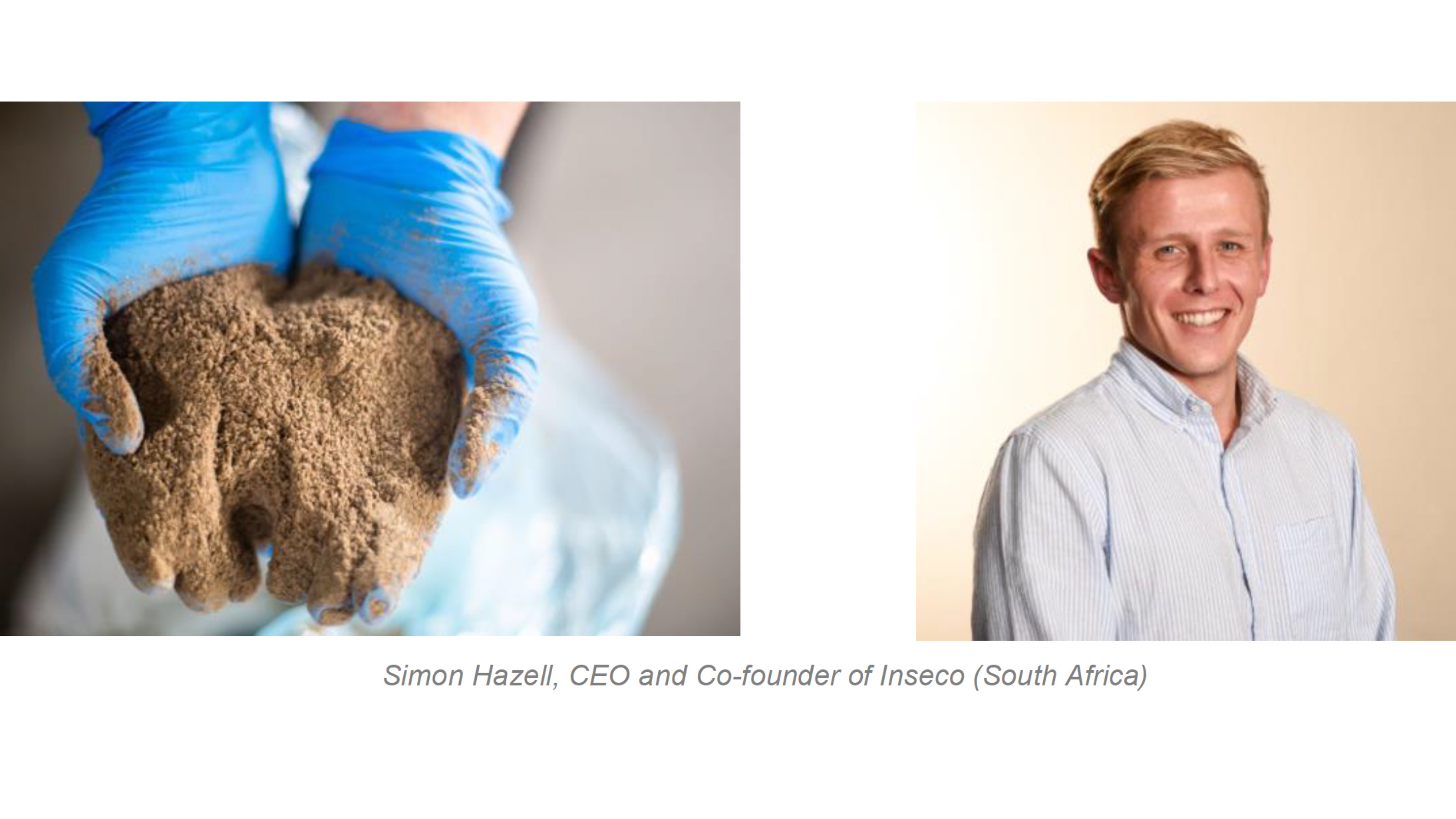
Inspired by this idea, Hazell started looking for practical solutions and picked one up literally from the ground: “I thought that black soldier fly larvae could be a solution since they can consume food wastes [and be then used as a source of protein]. I put together a team and began testing insect-based products to understand potential use cases”. His team, however, needed additional skills in strategy planning, business modeling, marketing and intellectual property to become operational. “Through its training workshops and mentoring, focus on green economy and funding opportunities, GCIP helped us put a framework in place that we have continued using to this day”, recalls Hazell.
Connecting cleantech innovators to funding
What proved to be more challenging for Inseco was access to funding to move their business forward. “Initially, we had to bootstrap the company. Insect protein is a complex business to demonstrate the use-case and achieve product-market fit. It requires resources upfront to prove the business case [for investors]”, says Hazell.
Cleantech SMEs often find it challenging to access funding opportunities. Enterprises working in renewable energy, energy efficiency, waste beneficiation, water efficiency, green buildings or sustainable transport and advanced materials are considered high-risk investments. As a result, entrepreneurs have limited access to interested investor networks.
For Atchara Poomee, a former GCIP national winner from Thailand, these challenges are well known. Poomee’s company PAC Corporation invented a PAC Frenergy energy-saving air conditioner technology for heating water, the first. PAC uses the heat expelled by air conditioners to heat water, thereby decreasing environmental impacts when compared to conventional water heating systems that use fossil fuels. “The first time we started the business, we focused on product development and marketing. But we did not know how to start financing and get funding from outside investors”, recalls Poomee.
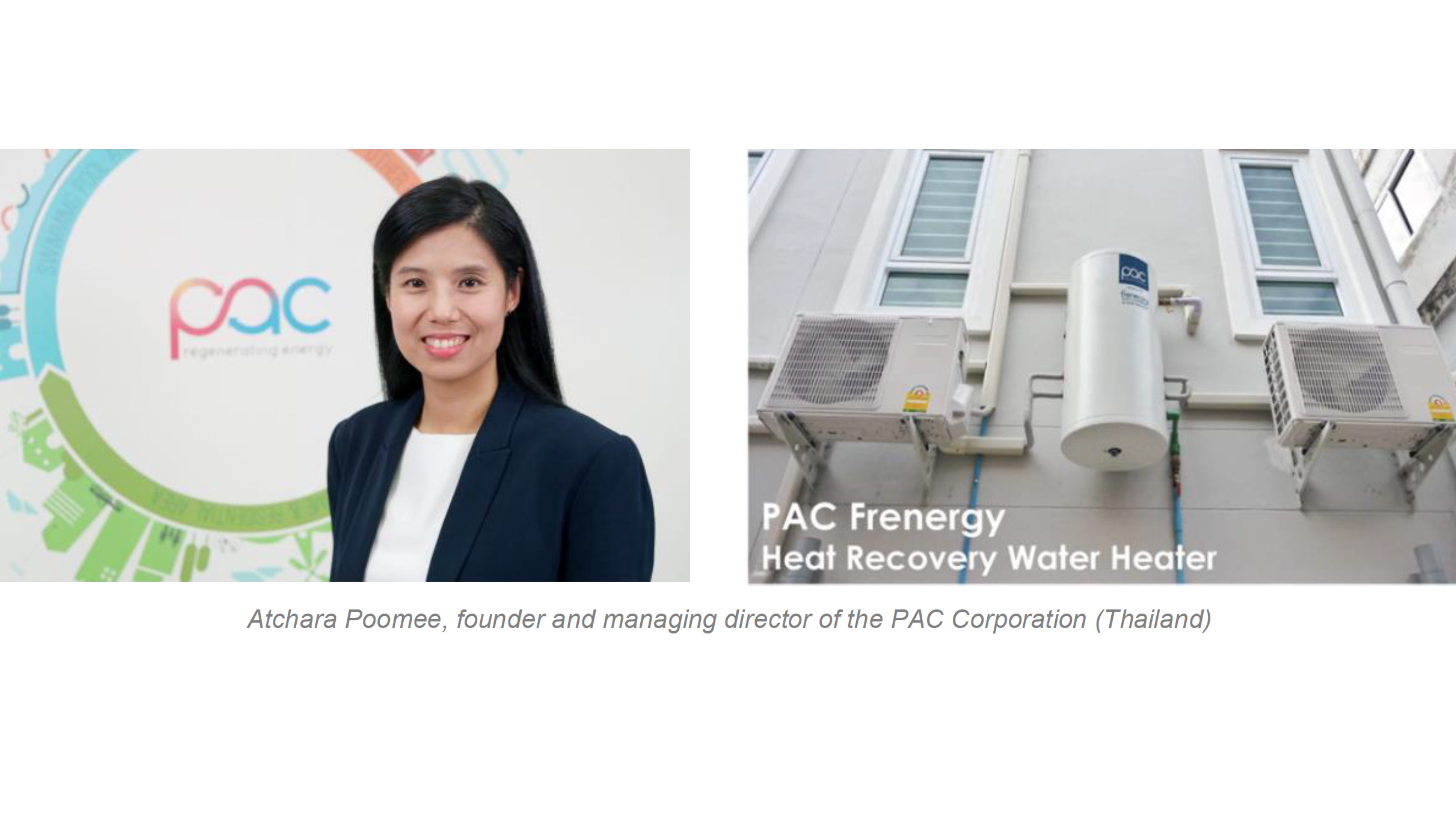
“Access to low-cost finance for cleantech in developing economies is a challenge. Historically, innovative cleantech solutions have been viewed as high-risk investments, making it difficult for entrepreneurs to get their businesses off the ground”, says Tareq Emtairah, Director of the Department of Energy of UNIDO. “GCIP works with national institutions to create bespoke funding mechanisms to address early-stage financing gaps locally, while also leveraging the network of UNIDO financing partners, through the Private Financing Advisory Network (PFAN), and other investors to connect innovators to the funding they need”.
For Inseco, their participation in GCIP South Africa gave them the much-needed investor readiness: “GCIP’s help with the investment deck, the pitching experience, the strategy planning and the networking opportunities were a big contributor to our success”, says Hazell. At present, Inseco supplies local aquaculture, pet food and poultry markets and plans to expand further in Africa, Europe and the US.
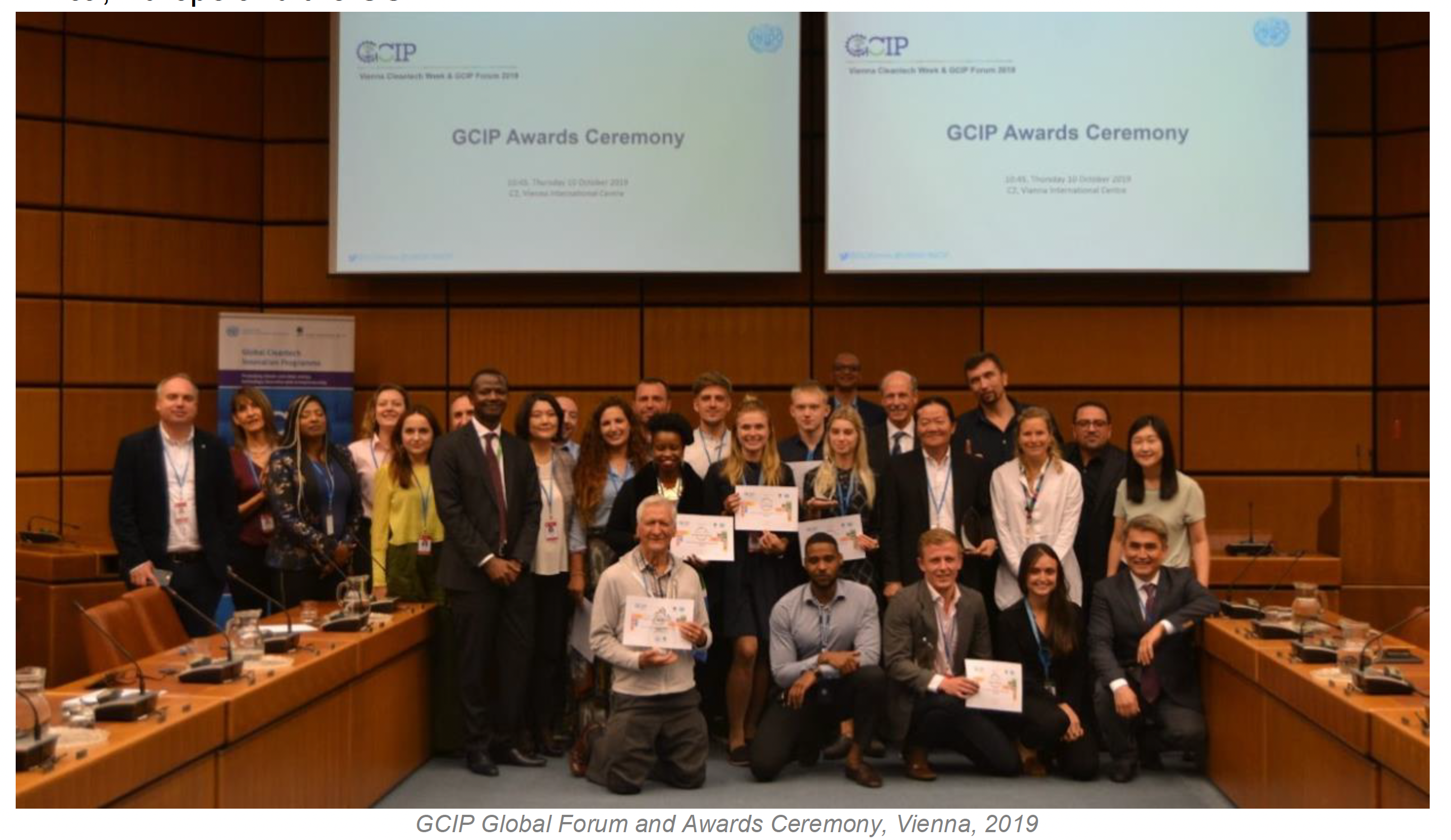
As for Poomee, GCIP has supported the PAC Corporation with business coaching sessions, helping them produce a cohesive business model and an attractive financial model as well as introducing them to potential investors. Since 2020, PFAN has provided Poomee with investment facilitation support. PAC refined its business model to develop an investment-ready proposal, and Poomee herself gained the necessary pitching skills to interact with investors.
Building enabling ecosystems
While cleantech SMEs have limitless potential, they require favorable conditions to thrive. There are many existing accelerator programmes, including those working with cleantech innovations, but what makes GCIP’s approach unique is its focus on systems innovation. GCIP addresses the root causes that prevent SMEs from realizing their full potential by building their capacities and strengthening the cleantech innovation and entrepreneurship ecosystems that support them. The goal is to enhance national ecosystems that provide responsive and cohesive support to grow cleantech companies for a greater climate impact.
“The climate challenge is huge and urgent. To address this challenge, we need to innovate more than ever and accelerate the solutions needed to make the shift to net-zero society possible”, says Alois Posekufa Mhlanga, Chief of the Climate Technology and Innovation Division of UNIDO. “GCIP uses systems innovation as a key tool to support the emergence, development and deployment of climate solutions at scale and pace that catalyzed transformational change towards net-zero”.
Creating impact for a greener future
Despite a two-year pause due to the COVID pandemic, GCIP is finally back and ready as ever to empower, de-risk and connect innovators. GCIP aims to support at least 1,250 SMEs until 2025, of which at least 35% will be woman-led enterprises. As a result, GCIP expects to cumulatively mitigate direct GHG emissions of at least 2,225,000 CO2e and indirect emissions of at least 11,275,000 CO2e over the next ten years.
“At the Global Environment Facility, we recognize the central role of cleantech SMEs in delivering game changing climate solutions”, says Filippo Berardi, Senior Climate Change Specialist at the GEF. “By promoting cleantech innovation, entrepreneurship development and long-term ecosystem sustainability, GCIP has the potential to contribute to the critical systemic transformation needed to accelerate climate action”.
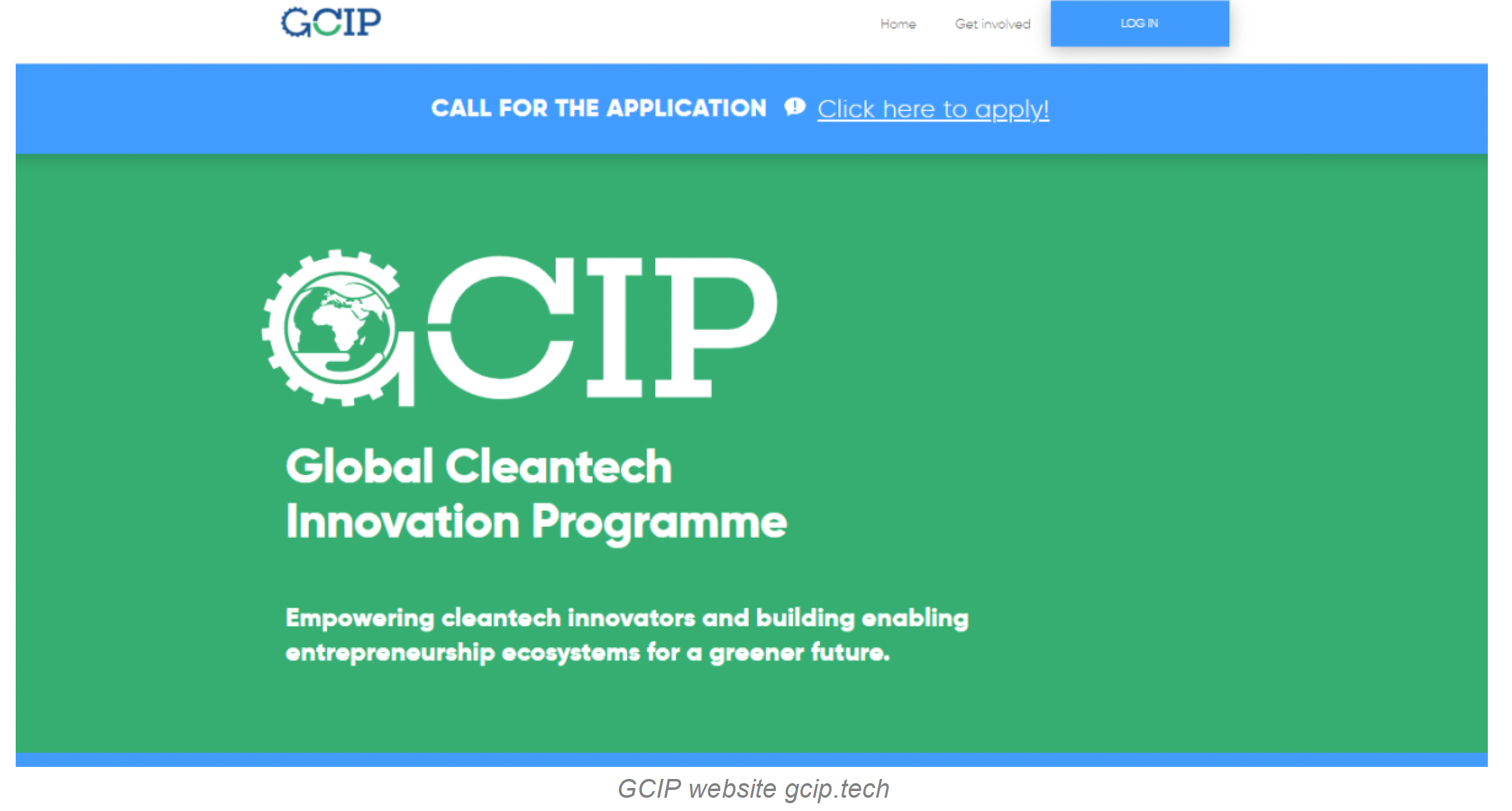
Building upon its previous experience, GCIP comprises a network of more than 15 countries, including Cambodia, Indonesia, Kazakhstan, Moldova, Mongolia, Morocco, Namibia, Nigeria, Pakistan, Senegal, South Africa, Turkey, Ukraine, Uruguay and Viet Nam. This year, GCIP national cleantech accelerators will already take place in several of them, followed by the Global Innovation Challenge in early 2023.
By harnessing the catalytic potential of cleantech entrepreneurship, GCIP addresses climate change through cutting-edge solutions, for a greener and more prosperous future.
Contact GCIP
Follow GCIP on Twitter (@GCIPsmes) or LinkedIn (UNIDO Global Cleantech Innovation Programme)
For more information, please, contact:
Olga Rataj, GCIP Programme Manager
Gerswynn Mckuur, GCIP Global Coordinator
Alois Posekufa Mhlanga, Climate Technology and Innovation Division Chief